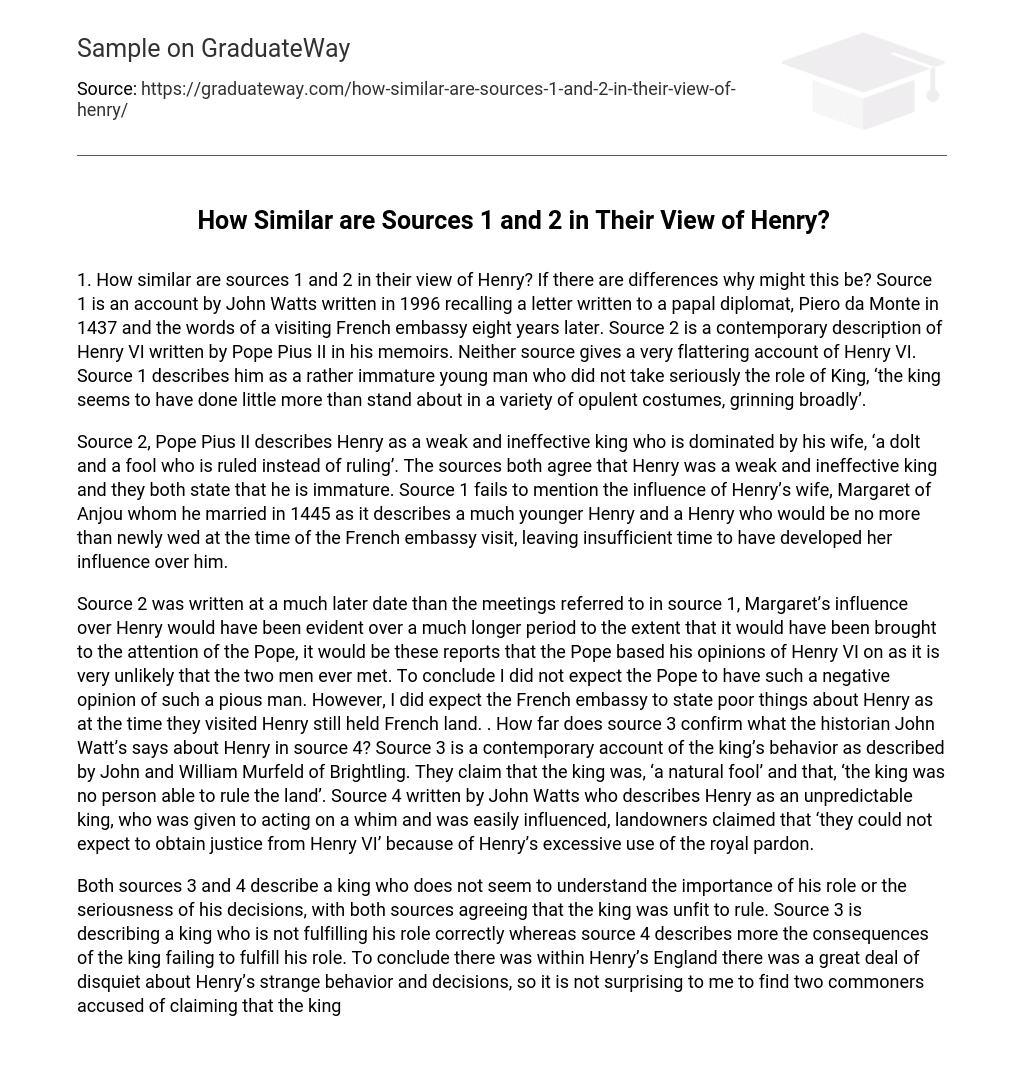1. How similar are sources 1 and 2 in their view of Henry? If there are differences why might this be? Source 1 is an account by John Watts written in 1996 recalling a letter written to a papal diplomat, Piero da Monte in 1437 and the words of a visiting French embassy eight years later. Source 2 is a contemporary description of Henry VI written by Pope Pius II in his memoirs. Neither source gives a very flattering account of Henry VI. Source 1 describes him as a rather immature young man who did not take seriously the role of King, ‘the king seems to have done little more than stand about in a variety of opulent costumes, grinning broadly’.
Source 2, Pope Pius II describes Henry as a weak and ineffective king who is dominated by his wife, ‘a dolt and a fool who is ruled instead of ruling’. The sources both agree that Henry was a weak and ineffective king and they both state that he is immature. Source 1 fails to mention the influence of Henry’s wife, Margaret of Anjou whom he married in 1445 as it describes a much younger Henry and a Henry who would be no more than newly wed at the time of the French embassy visit, leaving insufficient time to have developed her influence over him.
Source 2 was written at a much later date than the meetings referred to in source 1, Margaret’s influence over Henry would have been evident over a much longer period to the extent that it would have been brought to the attention of the Pope, it would be these reports that the Pope based his opinions of Henry VI on as it is very unlikely that the two men ever met. To conclude I did not expect the Pope to have such a negative opinion of such a pious man. However, I did expect the French embassy to state poor things about Henry as at the time they visited Henry still held French land. . How far does source 3 confirm what the historian John Watt’s says about Henry in source 4? Source 3 is a contemporary account of the king’s behavior as described by John and William Murfeld of Brightling. They claim that the king was, ‘a natural fool’ and that, ‘the king was no person able to rule the land’. Source 4 written by John Watts who describes Henry as an unpredictable king, who was given to acting on a whim and was easily influenced, landowners claimed that ‘they could not expect to obtain justice from Henry VI’ because of Henry’s excessive use of the royal pardon.
Both sources 3 and 4 describe a king who does not seem to understand the importance of his role or the seriousness of his decisions, with both sources agreeing that the king was unfit to rule. Source 3 is describing a king who is not fulfilling his role correctly whereas source 4 describes more the consequences of the king failing to fulfill his role. To conclude there was within Henry’s England there was a great deal of disquiet about Henry’s strange behavior and decisions, so it is not surprising to me to find two commoners accused of claiming that the king was a fool.





